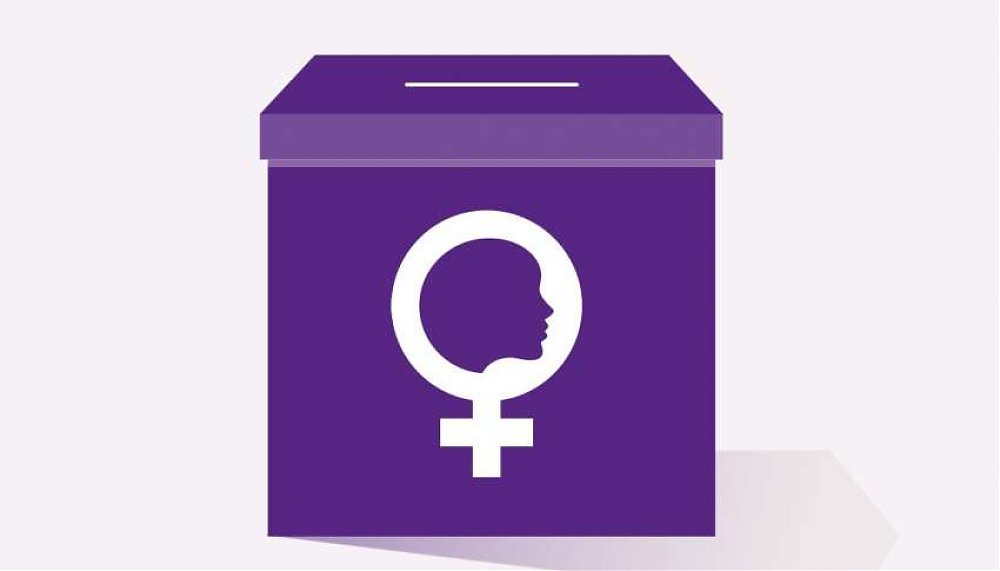If no one could vote for a member of parliament who was fit to be a candidate, the government would indeed be a narrow oligarchy.
(JOHN STUART MILL, “The Subjection of Women”)
Electoral feminism is a paradigm of gender-based equality and non-violence in elections to create justice. Elections as the only way to achieve democratic power may not guarantee women's participation. Using this paradigm, we can conclude that democracy in a country actually means more "of, by, and for men".
The offer of electoral feminism is present because when the electoral paradigm discusses women, it only focuses on numbers and quotas. In fact, the presence and representation of women in elections are related to various variables and complex contexts. Electoral feminism will try to dismantle gender political injustice in the domains of legal structure, implementation, culture, and individuals in the election context (D'ignazio & Klein 2020). The more complete our understanding of feminism and elections, the better we can explain the quality of gender equality in a country.
For example, electoral feminism can be used to question the position of women in a country. For example, the United States, a country with the status of "full democracy" (The Economist) and "freedom" (Freedom House), apparently experiences gender inequality in all public positions elected through elections but has a state of service that guarantees more freedom, equality, and justice than the state. Rwanda has more than 50% female representation in parliament.
When there is a gender hierarchy in election law and its implementation, there is injustice. If election law and its implementation guarantee that there is no discrimination, injustice can still occur if there is still gender inequality in culture. When participation in the election process is not gender representative, when the selection of election results officials is gender unequal and has discriminatory policies, then real injustice occurs.
Electoral feminism is also a paradigm that includes the concept of waves of feminism. The first wave of feminism was a struggle to free women from discrimination in rights under public law, one of which was political rights. The second wave of feminism radically places patriarchism as a systemic cause of injustice, so that the identity of women's bodies must be affirmed in the state's legal structure and societal culture. The third wave of feminism intersectionally connects other marginalized identities and various issues to achieve broader and more meaningful equality and justice. These three waves include variants in them—not an achievement of perfection but a choice of analytical knives whose sharpness is context-bound.
The feminist paradigm, coupled with the electoral concept, will analyze the degree of gender equality, freedom, and justice in elections. Including both will provide a more complete sense of gender injustice in a democratic country. So, we can find out the causes and more precise solutions to injustice in political parties, election participation, campaigns, voting, and elected governments.
The International Institute for Democracy and Electoral Assistance (IDEA) formulates standards for democratic elections. The main standards come from various international and regional declarations and conventions, as well as the UN Declaration and Convention on Human Rights and other legal documents. Meanwhile, additional standards come from the final election monitoring report (international or domestic), evaluating the implementation of the principle of free and fairness in a country, which has the impact of improving election laws, and model electoral codes of ethics developed by international organizations, governments, or NGOs.
A number of fairness paradigms may very well be needed to ensure electoral standards are met, not just procedural formalities. The human rights paradigm, for example, is needed to ensure the fairness of human rights in elections so that they can be procedurally and substantially democratic. It is very possible that human rights or other paradigms cannot detect gender-based injustice in elections, so electoral feminism is needed.
Choice of provisions and political system
Let's use election feminism to assess the fairness of the Indonesian election. Women's representation in central and regional parliaments is still below 30%. Regional heads are very gender unequal. Indonesia has indeed had a female president, but that was through a change of deputy because the male president was impeached. The gender imbalance in the selection of political positions all comes with a supply of membership, which is also gender unequal.
One of the results of the analysis of election feminism is proposing the affirmation of women in election law. Implement provisions for strengthening the position of women in 4K: party membership, candidacy quota, election organizer selection committee, and election organizer membership. The emphasis is on women's involvement in at least 30% of all aspects of political participation.
If you want to be an election participant, political parties must have 30% female management and candidacy. If you want many women to become members of the election organizers, the membership of the selection committee must also include women to make it more likely that many women will be selected as members of the General Election Commission (KPU) or the Election Supervisory Body (Bawaslu).
Even though these provisions are sufficiently fulfilled, women's electability is still gender unequal. A deeper analysis of electoral feminism found that the high costs of democratic parties made it difficult for women to balance the dominance of men in the contest. Campaigning in public spaces and on public frequencies (TV and radio), which are not controlled by the state, makes male candidates better known to voters. Unequal economic access means more women have minimal campaign capital. Funders or sponsors also have more confidence in supporting men because they consider their chances of being selected.
More deeply, electoral feminism concludes that the Indonesian political system is basically relatively unfriendly to women. The parliamentary system of government is more friendly to women, but Indonesia chooses the presidential system. The extreme multiparty system of parliament makes it difficult for laws to equalize citizens to be passed. Indonesia's electoral system is proportional and more women-friendly than the district system, but the open list variant is more hindering for women to be elected than the closed variant because contestation between individuals is contradictory to women's solidarity.
Remembering the origin
Finally, electoral feminism is also important to remind us that the beginning of the feminist movement was a struggle for political rights in elections. Rosemarie Putnam Tong in "Feminist Thought" explains that after the initial struggle for the right to equal education, the struggle of the first wave of the feminist movement (19th century) was the right to vote in elections. It was John Stuart Mill and Harriet Taylor Mill who inspired the idea that women must have the right to vote to be equal to men. It is important for the feminist movement to return to the first wave of feminism by using a colorful spectrum of analysis.
Of course, political rights have not been fought for enough considering gender inequality in membership, campaign competition, electability, and policy. It is not right for feminism to stay away from elections on the grounds that there are no longer any restrictions on women taking part in politics, including the right to vote and be elected.
For the Mill couple, elections can not only express women's personal political views but can also change systems, structures, and attitudes that contribute to changing the oppression of themselves and others. Women do have the right to vote and be elected, but this is not enough of an achievement in the political struggle of the women's movement as long as election results and government policies are still unequal and gender unfair.
The Indonesian women's movement has actually achieved relatively many positive things compared to other movements, especially post-Soeharto. The affirmative provisions in the Indonesian constitution are part of the achievements of the women's movement. Article 28H(2) of the 1945 Constitution of the Republic of Indonesia states that every person has the right to receive facilities and special treatment to obtain the same opportunities and benefits in order to achieve equality and justice. This constitutional provision then gave birth to the affirmative provision of a minimum of 30% women in political party laws and electoral laws. Even these affirmative provisions are used by other marginalized groups to achieve a more free, equal, and just condition.
After all that, it would be a shame if the women's movement, with its feminism, stayed away from the election. Later, justice solidarity weakened, and what strengthened was the quantity of women based on dynasty and popularity. So, rest assured that "the personal is political" and "one person, one vote, one value" always have the potential to combine to achieve equality. There is no democracy without elections, and there is no justice without the involvement of women in democracy. []
USEP HASAN SADIKIN











